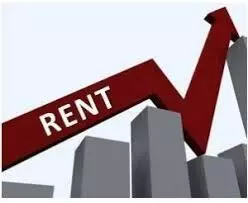What is Rent Control in Ontario

As we venture further into 2023, the real estate landscape in Ontario continues to evolve rapidly. Amidst the constant buzz surrounding the housing market, interest rates, and the effects of the ongoing pandemic, one question that keeps popping up is, "What is rent control in Ontario?" This blog post aims to shed some light on this pivotal issue and how it impacts the real estate market.
Rent control is a regulation that places a limit on how much landlords can increase the rent for residential properties within a year. The goal is to provide tenants with some protection against sudden, unreasonable hikes in rent. In Ontario, the Residential Tenancies Act, 2006 (RTA) governs rent control. It applies to most private rental units, including condos, houses, apartments, and secondary suites (basement apartments, for instance).
In the past, rent control in Ontario only applied to units that were built or occupied before November 1, 1991. However, in 2017, the Fair Housing Plan extended rent control to all private rental units, regardless of their construction date. This was a move aimed at further protecting tenants and creating more predictability in the rental market.
The Ontario government sets a guideline for rent increase annually, based on the Ontario Consumer Price Index, a measure of inflation calculated by Statistics Canada. For 2022, the rent increase guideline is 1.2% for increases between January 1 and December 31, 2022.
While rent control offers certain protections to tenants, it has also been a source of controversy within the real estate sector. Critics argue that rent control may discourage landlords from improving or maintaining their properties, as it caps the potential for profit. Additionally, it may also deter the construction of new rental units, leading to a shortage in the market.
On the flip side, proponents of rent control believe it is a necessary measure to protect tenants from the ever-increasing cost of living, especially in bustling cities like Toronto and Ottawa. It also provides a sense of financial security and stability, as tenants can anticipate and budget for annual rent increases.
Navigating through Ontario's rent control regulations as a landlord or tenant can be complex, but it's worth understanding the rules to ensure that your rights are protected. For landlords, it's crucial to note that rent can only be increased 12 months after the tenant has moved in or 12 months after the last rent increase. Also, the landlord must give the tenant a written notice of the rent increase at least 90 days before it takes effect.
If you're a tenant, it's essential to know that you can challenge a rent increase if it's above the guidelines. You can apply to the Landlord and Tenant Board within 12 months of the rent increase taking effect.
Categories
Recent Posts










"My job is to find and attract mastery-based agents to the office, protect the culture, and make sure everyone is happy! "
